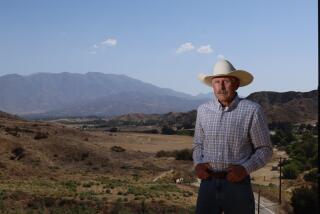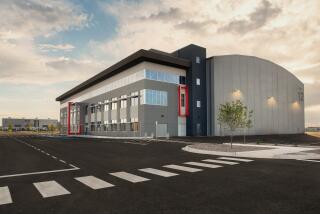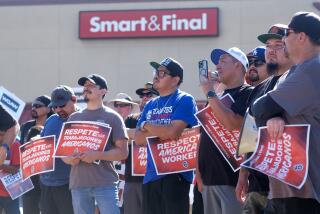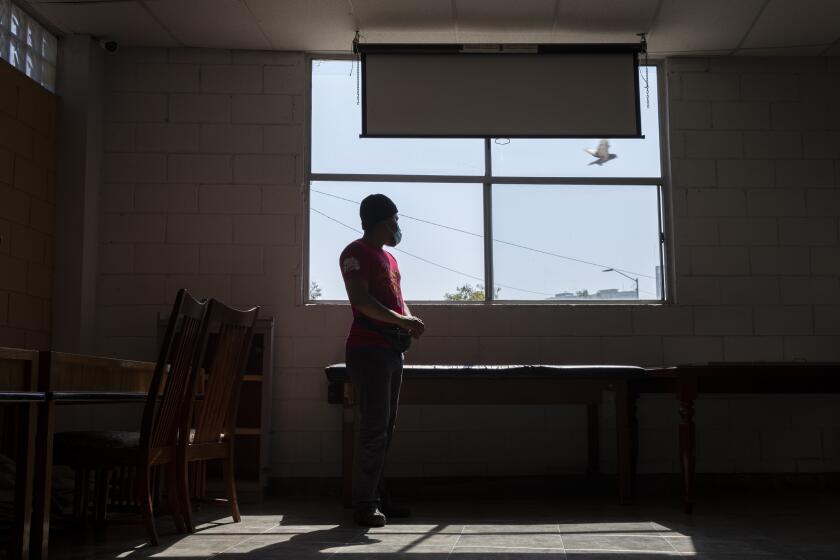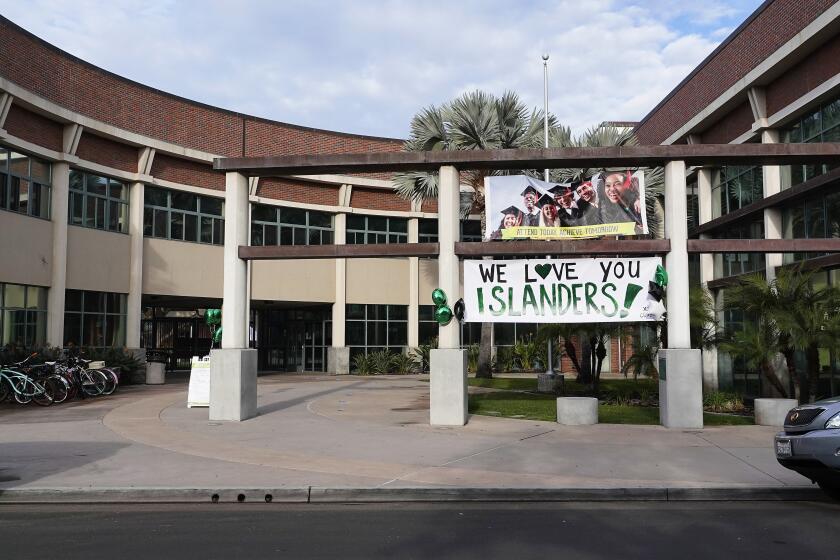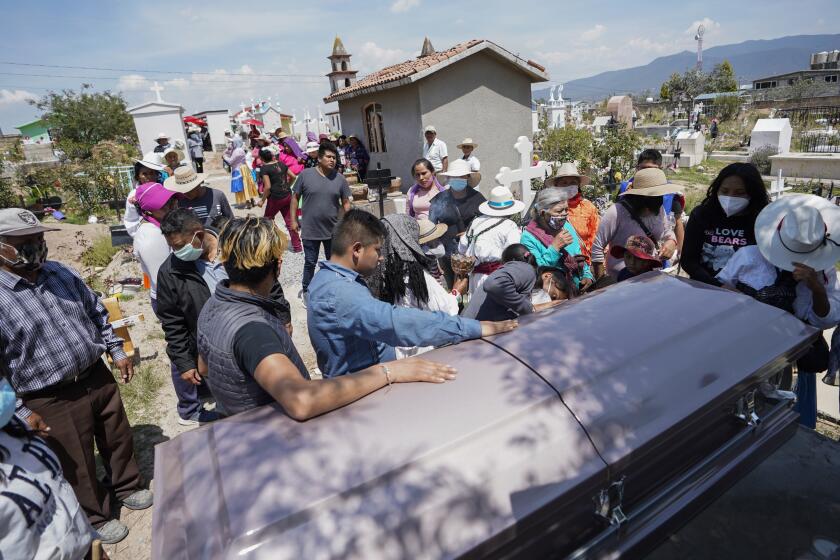New Amazon facility in Tijuana opens amid praise and controversy
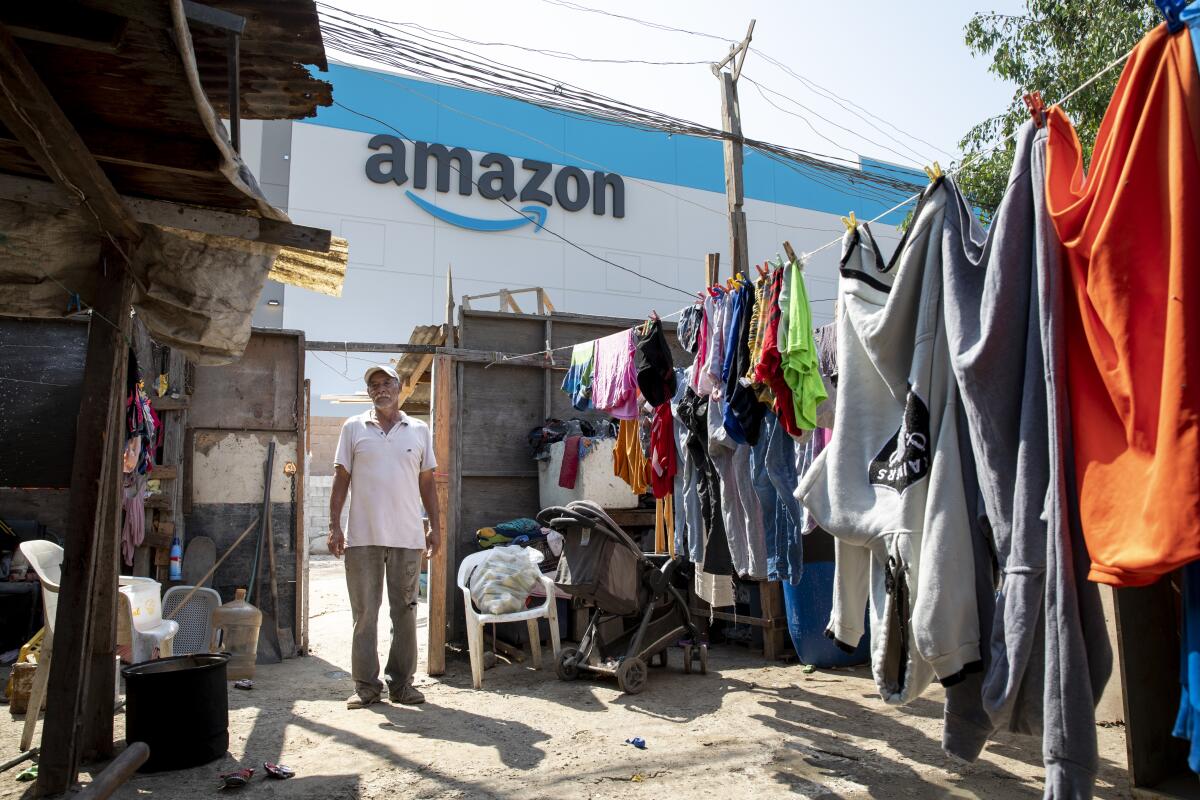
The photos quickly went viral. A new, 344,000-square-foot Amazon fulfillment center in Tijuana amid a settlement where many houses are built with wood scraps, tarps and cardboard.
The images, first posted by photographer Omar Martínez, opened the debate because of the clear contrast. Some people on social media called them a display of capitalism and globalization.
In Tijuana, both authorities and business-sector representatives praised the new investment entering the city, while residents of the Nueva Esperanza neighborhood, located in front of the warehouse, still have doubts about what this would mean for them.
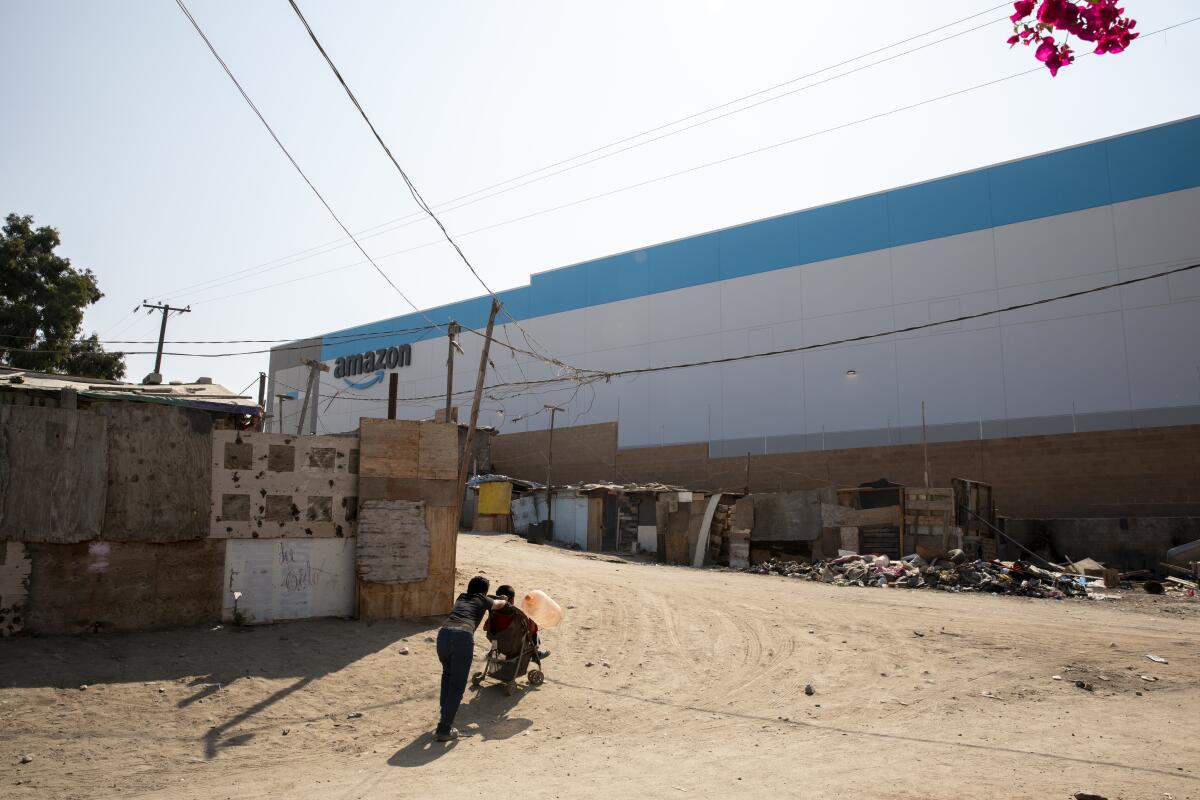
Amazon is scheduled to start operations in what will be its eleventh distribution center in Mexico on Sept. 22, said Arlene Herrera, spokeswoman for Amazon Mexico. At least 250 jobs will be created at this facility, she said.
“The arrival of Amazon to Tijuana contributes to the ongoing economic recovery in various productive sectors, achieving stability in employment,” reads a news release from the city.
The facility is in the Real Estate Management and Services Group industrial park, next to the Vía Rápida Alamar, an expressway.
About $21 million was invested in the construction of this facility, according to city officials. Herrera could not confirm that figure, citing confidentiality matters.
Tijuana Mayor Karla Ruiz, whose term ends in three weeks, is confident that the warehouse will trigger development in the surrounding area. “If you change an environment, it transforms the surrounding area,” she said.
Residents of Nueva Esperanza hope that those changes will benefit the area.
Pedro Arana has lived in the neighborhood for more than 35 years. His house, on an unpaved street, is right across from the new facility, which carries a big Amazon logo.
“There’s a lot of poor families here. Where we live there are not many resources to build and there are many people who come from out of state,” said Arana, who sells cheese for a living.
He acknowledges that, like many of his neighbors, he had no idea what Amazon was.
He hopes that the arrival of the company will help improve the conditions for residents, but he fears that they could be forced to move.
Although no authority has notified them about moving, it is a concern discussed among neighbors, said María Mendoza, who has lived in the area for more than 30 years. “We are here because we need a place to live,” she said. “We just don’t want this to work against us.”
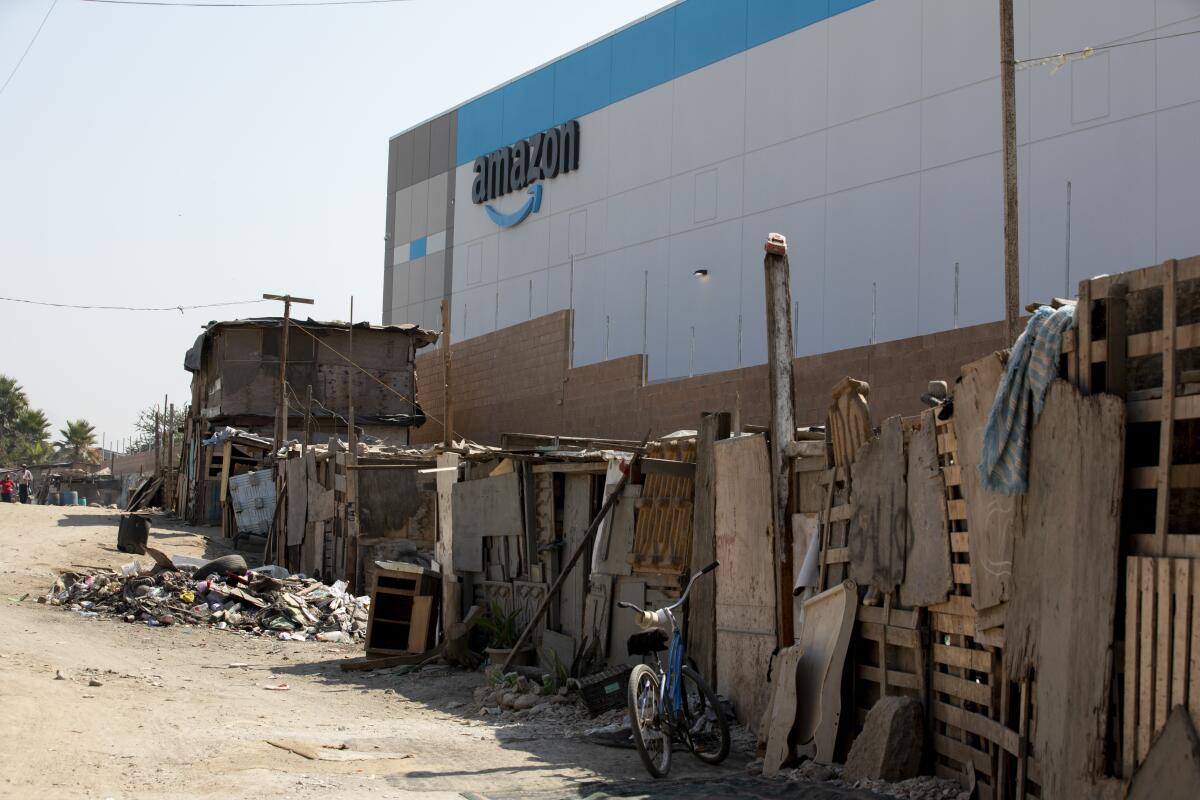
Tijuana’s secretary of economic development, Gabriel Camarena, said no one would be displaced. “Either there is complete transformation, or they will be offered other and more dignified living options,” he said.
Amazon is not the only company set up in the area. There are at least five other industrial facilities nearby, including one bigger (538,000 square feet) than Amazon, Camarena said.
Francisco Rubio, president of the Tijuana Business Coordinating Council, agreed that “it is always positive that First World companies continue to set up in our city.”
Diego Méndez, Amazon Mexico’s general director of operations, said in a late June news release that “at Amazon Mexico, we feel great responsibility toward the communities where we operate, and we are pleased to be able to offer hundreds of job opportunities in Tijuana.”
The distribution center aims to offer same-day deliveries in Tijuana and next-day deliveries to cities such as Mexicali, Tecate, Ensenada and Rosarito.
Herrera, the spokeswoman, said the center will serve only the Mexican market.
About five miles to the north, Amazon built a 3.4-million-square-foot facility in Otay Mesa, Calif., which is expected to provide as many as 1,500 jobs.
Between the Tijuana and Otay Mesa facilities, construction is underway for a second port of entry in Otay Mesa, which would be used by passenger vehicles and commercial trucks.
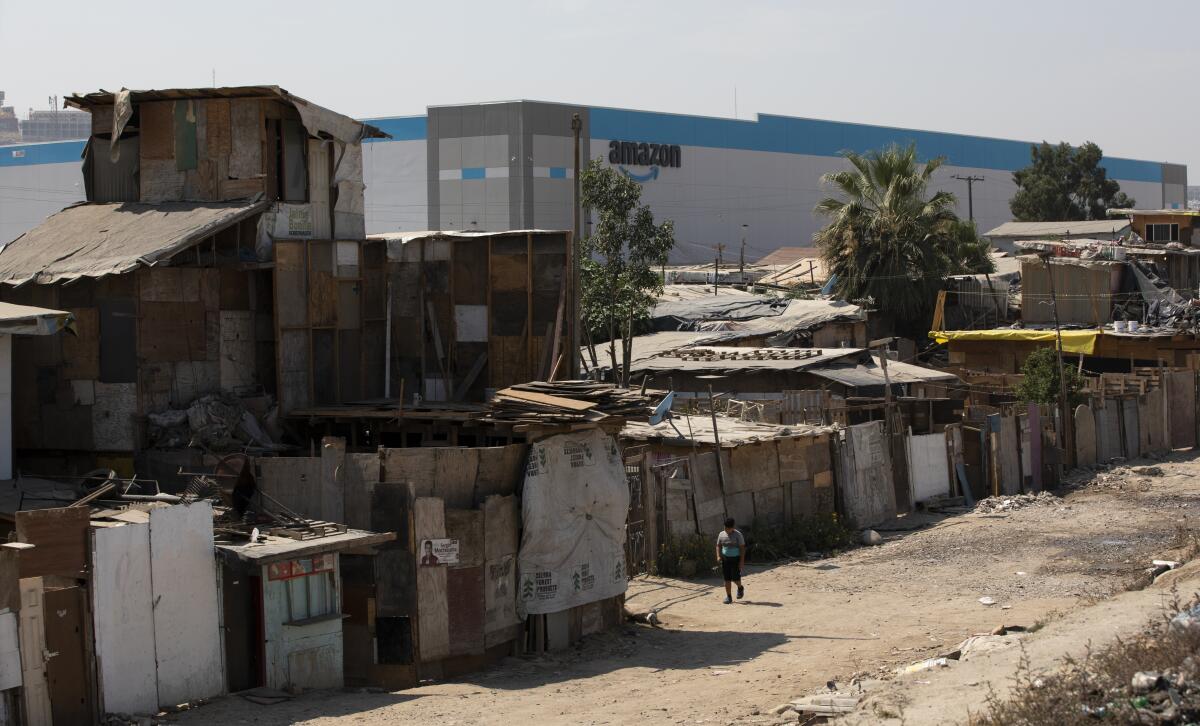
Melina Amao, a professor at the Autonomous University of Baja California who holds a doctorate in cultural studies, said of the images that went viral: “What is striking is the contrast of realities that can be seen in the photos, but this is nothing new.”
She said that although it is clear that the warehouse was built in a place with many needs, the images show other issues that need to be addressed.
“What is being done for all the other pending social issues?” she said. “What it highlights is the inequality.”
Special correspondent Yolanda Morales contributed to this report.
More to Read
Inside the business of entertainment
The Wide Shot brings you news, analysis and insights on everything from streaming wars to production — and what it all means for the future.
You may occasionally receive promotional content from the Los Angeles Times.

